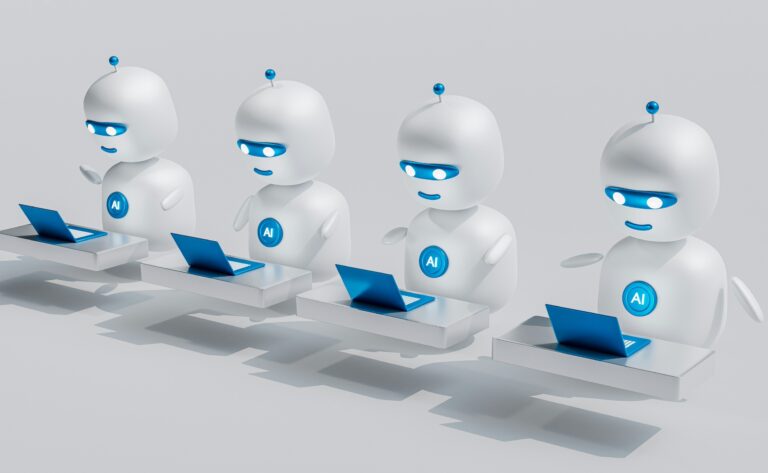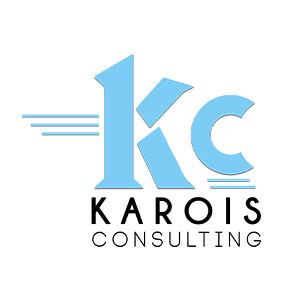Chat GPT has turned AI into a household phrase. I am one of the few who was privileged to foray into AI before it became a cool buzzword for the masses, doing practical work trying to figure out how AI could be used to improve everyday lives and business. I have some experience in two areas CPG/retail and travel. In both cases I was further away from the technical details and more into how to apply it in some form and how humans interacted or responded to it. In this particular article, the first of a few I really want to tease out general highlights and summarize my observations in these two settings.
To set the context I will first share the use cases, one being an attempt to combine AI/robotics to extend the grocery aisle to increase sales. I will not go into the business results and any of the mechanics of how we implemented the approach but will share some of the interesting considerations from my perspective. Since this was a client project though very public, I will only go into some detail. The second was a travel platform that helped curate itineraries and experiences based on a set of preferences and provided an abundance of information that may or may not be relevant for the trip.
The observations I will tackle today are somewhat simple (1) assumptions are everything (2) ease of use (3) what about content? (4) cost and efficiency (5) perception versus reality. During my time interacting with these AI products, I realized that it was important to visit assumptions with caution and beware of assuming everyone thinks like us, secondly the most important factor today with all of the various uses for technology is STILL ease of use, because then and only then will you have continued use. Thirdly, content is everything right because what is this thing designed to do besides the few pre-programmed things it does becomes the important question and how does it make my life better, fourthly is it really easier to use this AI thingy and not just for the customers but for all stakeholders. Lastly, the question becomes how much of the experience is perceived versus real?
Assumptions are everything as is timing. I sincerely belief that Chat GPT has lowered the barrier to acceptance of trying something AI related as I watch loads of my friends gladly creating AI photos on FB, I am reluctant by the way. In my B2B experiences it’s important to think about all the assumptions going into the AI powered value proposition. Too often we assume that our assumptions apply to the average user and without demonstrable value we are really just trying to force fit our impressions on others. In both experiences we made some right assumptions and some wrong ones. In the case of the retail example, we assumed sales would grow and they did but we never could imagine by how much. At the same time, we assumed that because the AI robot had been well received in hospitality and healthcare settings it would be the same in retail. However, the context was limiting, shopping experiences can often be stressful therefore though the aisle assistant really was helpful it did not fit the consumers shopping mind frame. In the B2B travel context there was a clear benefit in employing AI however there may be intangibles such as trust or tolerance for repeats of searches that may vary among consumers. For one individual a Chat GPT search done thrice is time wasted whereas for another ten may still be considered a process for refinement. As AI implementors take time to think through assumptions for various stakeholders, segments etc. and consider the sell approach.
Secondly ease of use will always be important , I remember one of my friends who founded instore media advertising business in Oakland CA would often ask me what I thought of different apps and why someone would use it. I was renting a desk in his office, and I’d often wonder why he was obsessed and now more than ever I better understand his point. The best solution that requires one to read a book may not work for everyone. I recently had an AI powered one way job interview and to say the least I was a bit miffed with the process, simply because I am used to only having to prepare for my interview questions and not have to actually watch videos and remember a long list of instructions in the process. Being a rather seasoned person, it made me feel that my expertise may not be valued and that I was not benefitting from learning about the company through interviewers every step of the way . In my experience ease of use has to be defined according to the consumer, it has to be easy to interact with a product selling robot in a store and it has to be easier to plan travel using an AI powered travel platform.
Thirdly, what about value or content? What unique benefit is the AI platform bringing to the customer? Is it really important to buy products outside the aisle location? Maybe so if its’s a milk gallon and it keeps me from walking half the store but may not be so for an unhealthy food option that I am trying to avoid. Or in the case of booking travel when is content valuable and how much content do I need in order to get ready for a trip? Does it even matter when I get the information, before, on the way or during the visit. This question has a different answer for different customer groups otherwise but if it really comes down to content three important questions arise: where to get content, how one will keep updating the content and why should anyone give away (sell) their content in the first place. If we are all headed in this AI direction, should everyone focus on preserving their content /data until they need it? The other way to think about this is should the AI platform be a content generator or consumer? What valuable by products can be gained from the AI platform and later reintroduced into the algorithm or sold to build another AI model elsewhere? One also has to wonder how much more important content will become in the coming months and years, how its value will be derived and driven up and whether private organizations will closely begin guarding their information and data? Is AI development sustainable in the long term then?
Cost and efficiency is another factor, this goes back to ease of use. Imagine a roving shelf that meets the customer anywhere, that means they save some steps to their product, customers are enticed into a sale that may have otherwise not happened. All these things sound good when one considers what it takes to launch an AI powered solution but how about the users? Does this new process create inefficiencies, create gaps that did not exist prior, require coverage by a person, or require entirely new skills? I know you might be saying that is the whole point of innovation however it does come with a cost and can slow the rate of adoption and or acceptance. It might have been amazing for a customer to pick a product anywhere in a store but how about for store personnel replenishing product? A roving robot may be out of sight, secondly and even if one locates it, it may be moving at a quick pace as the employee plays catch up. Just imagining the experience all the while as the benefits of an AI powered solution are being touted. In a travel solution controlled by preferences (AI isn’t intelligent all by itself) how many preferences are too little or too much? How much precision is needed? How may adjustments will the user have to make to get their optimal outcome? Will they even know when they are close to their optimal outcome as the model is continuously retraining itself?
Lastly, but not least is the overarching concept of perception versus reality, as I’ve worked on teams developing or implementing AI/ML solutions I have run into the same thing, what is perceived to be benefit versus that which is actually a benefit. One thing that is clear is the fundamentals that are benefits will always be benefits which is why my list of considerations sounds like the everyday tech benefit list. What will differ is how these benefits are reframed in the AI context and the perception of those either developing or using the solutions. How closely can we align ourselves with reality. AI is supposed to be easier; it is supposed to be helpful; it’s supposed to be more efficient, but is it? How do we develop objective standards and metrics to measure the effectiveness of AI in differing contexts and how do we quantify that as a measurable benefit so we can step away from subjective views, the need to be seen as tech savvy etc. Like any solution AI will have its run, some may fall off the bandwagon and others will ride the course, however we will all need to find a place between perception and reality where we can justify using AI in whatever setting business or personal.









